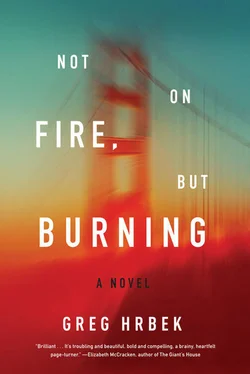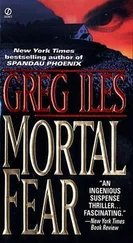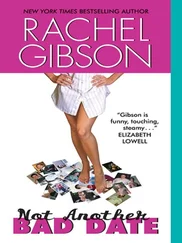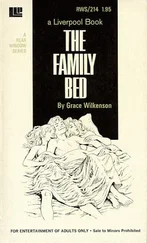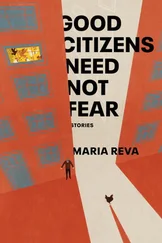“Omar,” the girl is saying. “Just cut it out.”
“Khaleela. Just shut your mouth.”
“Hey—”
“Forget it,” she says to the white kid; and she’s holding his arm, touching him — which, for some reason, makes Karim even angrier and more certain that the time has come, the sun at a tipping point, time for an action that will prove his willingness and his readiness for the greatest of actions. If only the sheikh could see. And then he realizes: The camera, the camera in your phone .
“I told you before, don’t be rude to her.”
“You told me.”
“Now if you do it one more time, one more time, okay, and I’ll knock the towel off your fucking head.”
“ What? ”
“You heard me.”
And while the other kid, the black one, is saying, “Okay, bro,” Karim is dropping his croquet mallet, not simply dropping it but throwing it sidewise over the grass. It’s a gesture everyone sees. So sudden and dramatic that all speech and thought comes to a momentary stop.
What came next: I just stood there, not getting what he was walking at me for. To tell me something, was all I could guess — like he’d chosen me as the keeper for some secret. Even after he drew his arm back to hit me, it seemed I was still waiting to see what would happen. So he got me full in the stomach. While I suffocated, no one moved or spoke. Then my breath came back. Omar grabbed my shirt from behind. I swung a fist over my shoulder and caught him in the jaw before the other two got me by the arms and neck. Everyone shouting in Arabic and English. This time it came even more out of nowhere. Flash of blindness, then the pain across my face, like a baseball had taken a bad hop. Then blood. On my upper lip and into my mouth. I heard Karim saying: “Hold him down.” Which they did. They wrestled me to the ground and the next thing I saw was the kid standing over me with his phone, positioning the camera eye above my face, snapping a picture.
Mitch had found the photo. There were about five hundred in the folder. So it had taken him nearly an hour of looking. Then, there it was. The three of them, in the days before Dorian, on a beach. His son was right: a low angle. Unlikely, maybe impossible, that the camera had been been set down in the sand and programmed to work its own shutter. The people were too precisely framed and the horizon of ocean too true. Now that he could study it, Mitch noticed other things. First of all, on the left side of the image (to the left of Kathryn, in the distance, in the water) stood a rock arch. Instantly he knew it. Goat Rock. About a half hour’s drive from their old house, where the Russian River ends its southward course and fresh water commixes with salt, and where, in the springtime, on the plateaus of sand to either side of the estuary, harbor seals birth and nurse their pups.
As he stared at the image on the computer screen (he was in his office, in the summer-deserted halls of the department, the building quiet as a church between services), Mitch tried to call to mind the friends who would join them in those days on such outings, and which member of that disbanded league would’ve conceived such a photo and lain prone in the sand to realize it. Fourteen, fifteen years ago. Perhaps the photographer had also pressed upon Kathryn the sunglasses with the tea-saucer-size lenses, an accessory she would never wear for any effect but comedy …
He sent her the picture.
Five minutes later, she replied: GUESS I REPRESSED THAT TRAUMATIC MEMORY OF FASHION — AND YOUR SON AND HEIR WAS A FAT LITTLE S.O.B.
And Mitch wrote back: BUT DO YOU REMEMBER THAT DAY AT ALL? SEE GOAT ROCK IN THE BACKGROUND.
And she replied: VISUAL EVIDENCE NOTWITHSTANDING, I’M PREPARED TO SWEAR UNDER OATH THAT I NEVER PUT ON ANY SUCH PAIR OF SUNGLASSES.
He closed e-mail, closed the jpeg, thinking there was nothing to it — what could there be to it? And yet he didn’t send the file to his son. And the next day, when Dorian wrote Mitch wanting to know if he had found the photo, Mitchell lied and said he’d forgotten to look. As if he knew of a reason to keep it from him.
On Saturday, while his son is bleeding from his nose and possibly his mouth, Mitch — who all morning has been writing (which is to say: typing sentences, whole paragraphs, only to have them miscarry before completion and then he starts anew, like someone punished with an eternally futile labor) — opens the photo again. It has gotten into his head. Last night, he dreamed a kind of explanation for it. In the dream, Dorian was his eleven-year-old self, but his older brother was still two. They were all on the beach at Goat Rock and Dorian said: We have to take a picture before the radiation gets here … Now, looking at it again. Kathryn on the left with the sunglasses, Cliff in the middle, himself on the right. The ocean in the background and a rock sculpted by a thousand years of surf into the shape of a portal. Suddenly, his mind cognizes a detail that the nerve cells of his retina had sensed from the start: The sunglasses, a reflection in the lenses.
He copies the photo to the college server and goes into the department office and starts up the PC with the twenty-three-inch monitor.
Clicks on the file: The picture twice as large now.
There.
In the lens on the left. The one adumbrating his wife’s right eye — and most of her right cheek and a fraction of her forehead, too. Something there. An image. Though hard to tell what. He clicks on the magnification slider and moves it up halfway. His older son’s face fills the window. Then he moves the pointer onto the image and drags right — to his wife’s lips — and then down, until the sunglasses come into view. First the curving frame front. Then the lens. The reflection in it. Close up like this, all you see is a grid of black and white squares, not dissimilar to an unsolved crossword puzzle. But zoom out a few degrees: and the pixels will come smashing together into a shape. A person. Isn’t that what it is? A child, isn’t it? Blurred by low resolution and warped by the bend of the mirroring surface. But yes. Prone in a brightness that can only be sand, holding something that must be a camera. Long hair lifting like smoke. On the shoulder, the dark line of a swimsuit strap. A girl.
They have him pinned to the ground. Tarriq is kneeling on his right arm; Omar’s got the left one and also a fistful of Dorian’s hair. Pulling on the hair to tilt the face up so Karim can take another picture and thus the blood is running throatward and causing in Dorian a sensation of drowning. In his eyes the sun is a blinding bulb of unfathomable wattage — and though everyone is talking at once, he can’t seem to hear anything but the cicadas like a sound blasted without mercy through an array of loudspeakers. Through it all some part of him asking: Dude, where the fuck are you? Well, where else would Plaxico Hightower be — a boy with the reflexes of an emergency responder and the heart (even if he himself does not fully know it yet) of a pacifist — but sprinting over the lawn to enlist the aid of a peacekeeper? Sliding the door open while slamming his open hand on the glass. He can see through the kitchen to the living room and the baseball game on the flatscreen.
“Mr. B!”
Will is already on his feet, mind daymared with the vision of a kid floating face down in the water of the pool. Across the patio and almost to the steps when Zebedee calls: “No, back here!” He rounds the pool. Sees the children in the grass. Standing among the arches of the wickets and a litter of balls and mallets. One on the ground: not his son; his neighbor’s son. Blood on his face, but Will can see right away that this is nothing. An accident. Careless swing of a croquet mallet. Although when he gets closer, he is surprised by how much blood there is, on Dorian’s shirt as well as his face, and how black the substance is in the sunglare — and the poor kid also seems to have gotten it in the mouth.
Читать дальше
